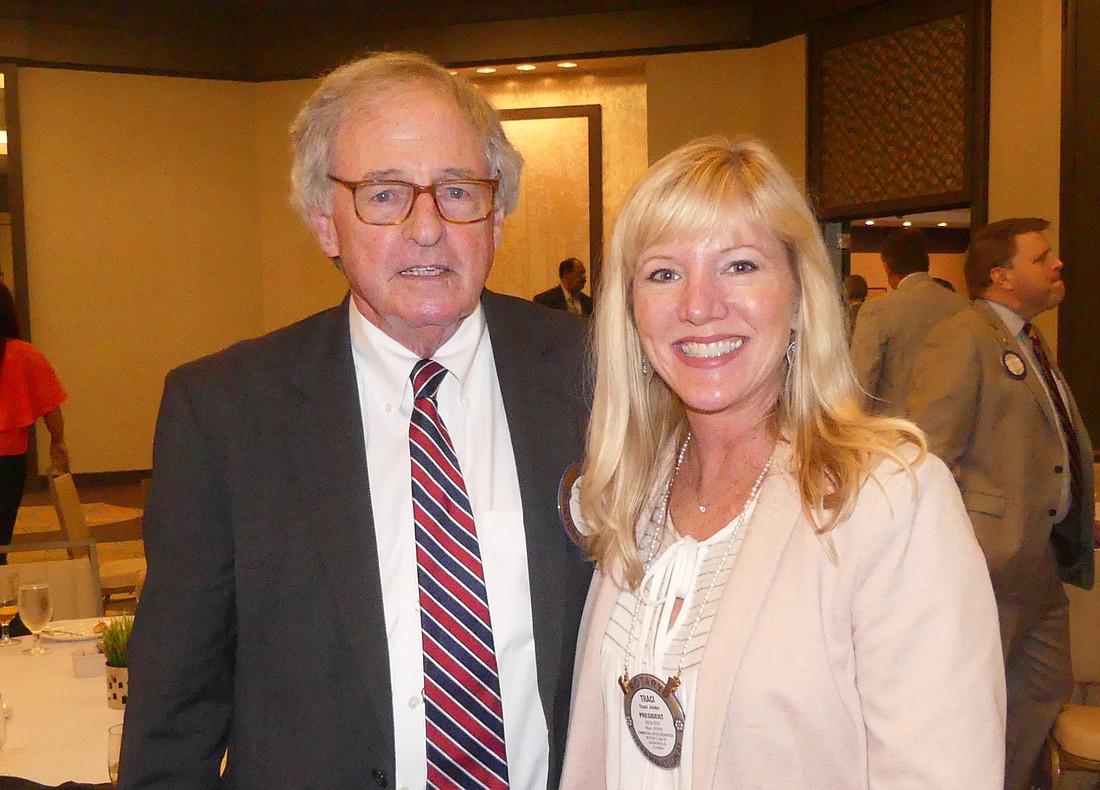
Attorney Hank Coxe, one of 37 members of the Florida Constitution Revision Commission, said the group’s nearly 14 months of work to consider possible amendments to the state’s most fundamental law was a once-in-a-lifetime experience.
“It was an interesting process and I made some friends,” said Coxe, who addressed the Rotary Club of Jacksonville at its meeting Monday at the Omni Hotel.
He said the process and its results could have, and should have, been more aligned with the original intent of the revision that’s conducted every 20 years.
“It was supposed to be a citizens’ review of the constitution,” he said.
It was instead controlled by politics, Coxe said, based on the commission’s structure in terms of appointments to the board.
The commission comprises the state attorney general, 15 members appointed by the governor, nine appointed by the Senate president, nine appointed by the speaker of the House and three appointed by the chief justice of the state Supreme Court, one of whom was Coxe.
When the commission was sworn in on March 20, 2017, Coxe was one of three Democrats among the 37 members, and many were elected officials already planning for their 2019 campaigns.
“They were going to do whatever didn’t jeopardize their getting re-elected,” Coxe said.
The political atmosphere guided the commission’s deliberations as the group traveled the state, conducting 15 public meetings to hear what Florida’s citizens wanted to see changed in the constitution. It then distilled thousands of public comments into the set of amendments that will appear on the Nov. 6 general election ballot.
Coxe cited one revision in particular – a proposal to include in the constitution a bill of rights for victims of crime. It was patterned after California’s “Marsy’s Law.”
He said Florida has in place some of the strongest protections for victims in the U.S.
In addition, he’s concerned that if approved by at least 60 percent of voters and enacted, the amendment could negatively affect how criminal justice is achieved by giving victims much more authority over the operations of the courts.
“It’s touted as a victim’s rights law, but it would turn the system inside-out,” Coxe said.
For example, “It would allow a victim to change a trial date that was already set by a judge.”
The most frustrating issue for Coxe was the commission’s rejection of even considering amending the constitution to include more stringent laws regulating access to assault weapons and high-capacity magazines.
The change was proposed by families of students murdered in the Parkland school mass shooting just days after the tragedy.
“All hell broke loose and the Rules Committee said it was too late to be introduced,” he said.
Another amendment on the ballot Coxe cited is the proposed amendment that would prohibit wagering on greyhound races.
“The Legislature could have dealt with that issue any time,” but the majority of the commission “wanted an emotional issue,” he said.